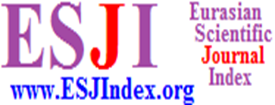Classical Civilizations and the Cosmos: A Comparative Analysis of Ancient Cosmological Theories in Light of Islamic Perspectives
الحضارات الكلاسيكية والكون: دراسة مقارنة للنظريات الكونية القديمة في ضوء الرؤية الإسلامية
DOI:
https://doi.org/10.1234/53zm0r85Keywords:
Classical cosmology, Greek philosophy, Islamic cosmology, metaphysics, ancient civilizations, Quranic cosmology, Aristotle, Ptolemy, Plato, pre-Islamic worldviewsAbstract
Ancient cosmological models developed by classical civilizations such as the Greeks, Egyptians, Mesopotamians, and Indians reveal a rich tapestry of human attempts to understand the origin, structure, and purpose of the universe. Philosophers like Plato and Aristotle proposed metaphysical frameworks centered on geocentrism, eternal matter, and hierarchical realities, while mythological traditions offered symbolic representations of the heavens and the earth. These models, although rooted in observation and logic, were often limited by their reliance on human reason and lacked a unifying divine narrative. This study aims to compare these ancient cosmological theories with the Islamic worldview as presented in the Qur'an and elaborated by Muslim thinkers such as Al-Farabi, Ibn Sina, Al-Ghazali, and Ibn Rushd. Using a comparative and interdisciplinary methodology that integrates philosophical, theological, and historical analysis, the paper explores key differences and convergences, particularly in areas such as cosmological structure, teleology, and epistemology. The findings suggest that while classical models laid foundational frameworks in metaphysics and astronomy, Islamic cosmology offered a theocentric and morally purposeful vision of the universe, grounded in divine revelation and integrated with reason and observation. The study underscores the significance of Islamic contributions in bridging science and spirituality and highlights how Islamic cosmology preserved, critiqued, and transcended earlier models. This analysis contributes to a deeper understanding of intellectual continuity and transformation in the history of cosmological thought.
Downloads





































